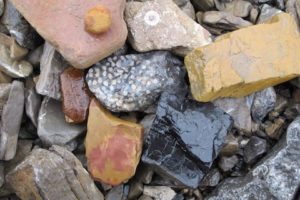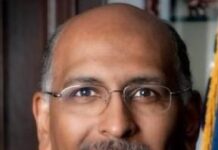 A new study presents data that shows that the geosciences are the whitest corner of the STEM world. The authors present data showing that there has been no progress in geoscience Ph.D. degrees in racial and ethnic diversity in 40 years. “It turns out that the geosciences are the least racially and ethnically diverse of the sciences,” says Heather Macdonald, Chancellor Professor of Geology at the College of William and Mary in Williamsburg, Virginia and a co-author of the study.
A new study presents data that shows that the geosciences are the whitest corner of the STEM world. The authors present data showing that there has been no progress in geoscience Ph.D. degrees in racial and ethnic diversity in 40 years. “It turns out that the geosciences are the least racially and ethnically diverse of the sciences,” says Heather Macdonald, Chancellor Professor of Geology at the College of William and Mary in Williamsburg, Virginia and a co-author of the study.
The authors did find that the nation’s undergraduate geoscience departments are doing a bit better. Their paper notes that the percentage of bachelor’s degrees awarded to students of color and Hispanic/Latinx students tripled from 1998 to 2018. But the paper points out that the lion’s share of that tripling is represented by one racial/ethnic group. The percentage of geoscience graduates identifying as Hispanic/Latinx went from 3 percent in 1998 to 10 percent in 2018.
Their figures also show a bare blip of an increase in Black geoscience bachelor’s degrees. The 20-year period covered by the paper shows Black geoscience bachelor’s degrees went up by a single percentage point, from 2 percent to 3 percent.
The research also found the two-fifth of all academic departments fail to graduate more than one student from a marginalized group per year. From 2014 to 2018, only 32 institutions, less than 10 percent of the total number of programs, conferred an average of more than one geoscience bachelor’s degree per year to Black/African American students, and only six averaged three or more per year.
In order to correct the lack of diversity, the authors write that “we will need to attract an inclusive student body, diversify the faculty, create accessible and inclusive learning environments, and ensure that all students feel they belong and are prepared for academic and career success in the geosciences.”
The full study, “Uneven Increases in Racial Diversity of US Geoscience Undergraduates,” was published in Nature Communications Earth & Environment. It may be accessed here.









As a black female in the geoscience field…this is my reality. And if I had it to do again…I would not. I love the content. It is my work and academic environments that are abusive. And the abuse is permitted.
If your so-called work and academic environment is so abusive you need to ask yourself why do you acquiesce to such disparate treatment. If the abuse is so pervasive, why don’t you file a lawsuit along with taking your talents elsewhere? In my view, entirely too many so-called Black academics at these HWCUs have convinced themselves they have to tolerate both implicit and explicit racism because they want to maintain a particular lifestyle from their salary and will not do anything to jeopardize it any capacity. As a result, they just continue to accept 2nd class treatment for years. How sad is that in 2021.
A quick Google search reveals she’s at
NCAT, an HBUC. Perhaps this article speaks to a systemic problem in the field and not the personal failures of the vanishingly few black academics who are bravely persisting in spite of the hurdles they face?
Hey CH,
I would highly suggest you work on your reading comprehension skills. For the record, it’s NC A&T which is an HBCU and not an “HBUC”. More specifically CH, McKee was referencing the “abusive academic environment”. Thereby, if she’s working at NC A&T, this is even worse because an HBCU is supposed to be a place where so-called Black academics do not have to worry about dealing with insecure White, Asian, and Latino academics found at HWCUs. Unfortunately, too many HBCUs have become employment agencies for people from other nations to the point where the entire department are a mirror image of racist HWCUs. Who can you blame for that? It’s real simple CH? It’s called the neoliberal, politically correct, Boule and so-called Black Greek card carrying members who are more concerned about accommodating the White state elected officials and White donors as compared to doing what’s right in the interest of the Black community. Last point, I just bet McKee’s department is majority non-native born Black American. In other words, spare me with your cowering response.